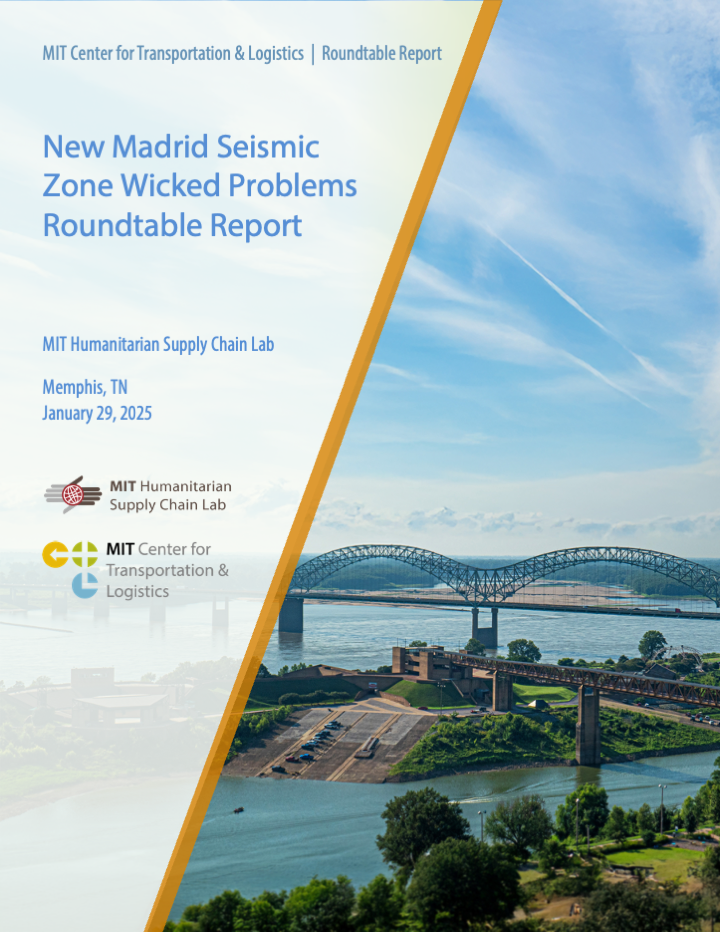On January 29, 2025, the Supply Chain Analysis Network (SCAN), American Logistics Aid Network (ALAN), and the MIT Humanitarian Supply Chain Lab (HSCL) held a workshop in Memphis, TN with industry, academic, and government stakeholders to discuss the New Madrid Seismic Zone (NMSZ) as a “Wicked Problem”: that is, a “class of social system problems which are ill-formulated, where the information is confusing, where there are many clients and decision makers with conflicting values, and where the ramifications in the whole system are thoroughly confusing.”
This report summarizes the key discussions, insights, and action items from this workshop which focused on building resilience, supply chain disruption, and emergency response coordination. The workshop brought together professionals from multiple sectors, including food supply, fuel distribution, freight logistics, and emergency management, to address the coordination challenges associated with catastrophic events such as the NMSZ and other large-scale disruptions in both the Midwest US and the rest of the country.
Workshop Goals
This workshop was designed with the following goals in mind:
- Explore the challenges and opportunities in managing catastrophic risks like those posed by NMSZ events, including their impact on supply chains, infrastructure, and adaptive systems.
- Foster collaboration by identifying shared crisis-management priorities across sectors, highlighting differentiated needs, and building mutual understanding of support mechanisms and strategic actions.
- Build connections and gain insights into proactive behaviors, strategic collaboration, and actionable steps for improving readiness and resilience in extreme risk scenarios.
Download the full report here.
About the MIT Humanitarian Supply Chain Lab
The mission of the MIT Humanitarian Supply Chain Lab is to understand and improve the supply chain systems behind public services and private markets to meet human needs. Based within the MIT Center for Transportation and Logistics, the Lab combines MIT expertise in engineering, management, information technology, social science, economics, urban planning and other disciplines to drive practical innovation for humanitarian interventions. The lab has a diverse portfolio of projects to improve emergency response during crisis and to enable market development that improves resilience. Our theoretical and applied research is driven by active engagement with the private sector, government agencies, humanitarian, international development, and community organizations on several continents.
